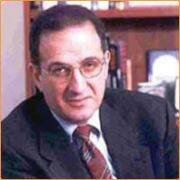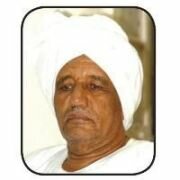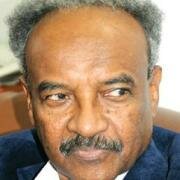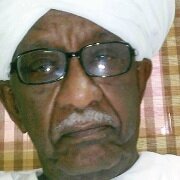It is so hot this April that if you threw paper in the wind, it wouldn't stay intact
; it would fall into the blazing earth like so many pinches of ash. On Friday, 6th April, when I went to the news stall, one of the readers there asked the news vendor to give him something that would delight him. Seeing that he have him Altayyar newspaper, I bought a copy myself. What captivated me was an interview with Mubarak Al-Koda in which he recounted his experience as one of political detainees on 3rd March 1985. Koda went on to describe how April or the deep river of the masses as poet Mhajoub Sharif put it, just over a year later, turned into a spontaneous revolution of the starved and a victory that against the elites. This was the revolution that witnessed the end of the rule of president Gaffar Nimeiri. It is these recollections of AL-Koda – a prominent Islamist – that I share with you now. I was in Kassala on holiday on my return as a Sudanese expatriate from Saudi Arabia. The previous evening I had taken part in a symposium held by the Socialist Union. Then next morning, just after the dawn prayer, I was detained. My arrest was sudden. As I returned from mosque, I found security personnel searching my house, including an officer.
These men were gentle and polite because we were sons of one town , bounded by family ties and political feuds then had not been so extreme. The number of people they detained in total was approximately twenty from all regions of Eastern Sudan. We were transported from Kassala to Kobar prison by a military plane returning from Port Sudan with some leftist brothers like the late Dr. Al Khatim Adhlan with whom I had developed amicable relations. Among the figures inside the prison that are known to the public there were Shiekh Atiya Muhamad Saeed, Abdulmajid Idris – now deputy of the head of the Sudan judiciary and professor Taj Fadallah, the former Vice-chancellor of Kurdofan University. We weren’t totally cut off from the outside world. So that we could continue to improve ourselves in prison, we were allowed to take books. Our brother Abdullah also had a radio that enabled us to know what was happening outside. Our location in prison was near the western fence so we sometimes heard chants of revolutionaries. I remember on the day General SIwar Dhahab announced that armed forces seized power a big demonstration took place, besieging the prison with roaring shouts.
Some of soldiers began firing to intimidate demonstrators. From inside prison we shouted with those outside, urging the soldiers not to use their weapons. It had all started on 6 April, after dawn prayer, when there was a remarkable movement of military aircraft, especially helicopters, presumably carrying military delegations to inform the different military zones with the decisions of General command. After hours of such moves we clustered around the radio together with guards from the prison force and some officers. Leutenant General Siwar Al-Dhahab broadcasted his first communiqué, informing us that Sudanese armed forces had seized power. I felt like I was born again. As soon as the first statement had been circulated, crowds of demonstrators surrounded the fences of the prison.
In prison we heard shouts and knocks that made prison administration give in to insurgents. One the doors were open and the demonstrators had come in, they bore up on their shoulders detainees whose tears of joy mixed with revolutionaries. Guiltone Prison was destroyed. I will never forget how we distributed our civilian clothes among soldiers so they would not be hurt by the demonstrators as they escaped. After my release from prison I was so tired that I asked a taxi driver to take me right away to my sister, who at that time lived somewhere in Al-sahafa. When we arrived home, I asked the driver to wait so I could bring him his fare. When I got back, however, I found he had left, leaving behind for me all the money that was in his pocket. T.S Elliot once wrote :'April is the cruellest month'' Indeed, it appears so for tyrants as the oppressed suffered enough in other months.
-
Focus: The Iraq Reckoning still Reverberating (1-2)Next >




